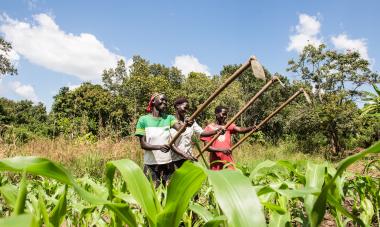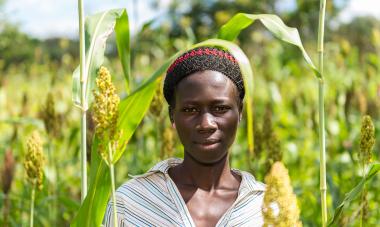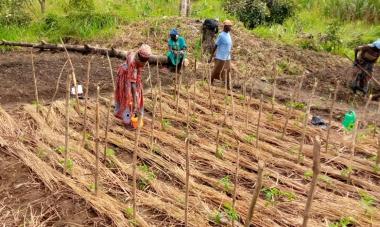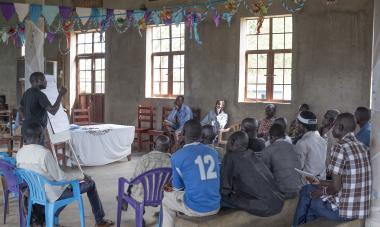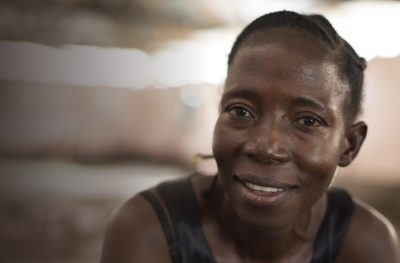After years of silent suffering, the women of South Sudan are beginning to speak out. About really difficult topics. In public.
And it’s none too soon. A recent report from the UN Commission of Human Rights stated that South Sudan is one of the most dangerous places in the world for women and girls to live. In fact, the word “hellish” was used. Not only because of persistent hostilities, widespread famine and climate-change related catastrophes but also because there is an intense level of conflict-related sexual violence that is endemic to the culture.
Simply, women and girls in South Sudan are at risk the moment they leave their homes to look for basics like food, water and firewood. This PBS News Hour short explains.
Twenty years of struggle for independence followed by a decade more of internal conflict have left generations of men raised in instability and violence. Abuse, rape, abduction, murder and human trafficking are so common that higher-ups mostly look the other way.
In the UN report, based on interviews conducted with victims and witnesses over several years, survivors of all ages detailed
“staggeringly brutal and prolonged gang rapes perpetrated against them by multiple men, often while their husbands, parents or children have been forced to watch, helpless to intervene.”
The perpetrators? Often soldiers who are not even paid subsistence wages and thus view women as spoils of war. Some abusers, however, are high government officials.
The resulting trauma, says the report, “ensures the complete destruction of the social fabric.”
Says Yasmin Sooka, chair of the UN Commission, “It is outrageous and completely unacceptable that women’s bodies are systematically used on this scale as the spoils of war. Urgent and demonstrable action by authorities is long overdue, and South Sudanese men must stop regarding the female body as 'territory' to be owned, controlled and exploited.”
But according to Miriah John, WfWI’s advocacy coordinator in South Sudan, domestic abuse - especially intimate partner violence - is also a serious problem in South Sudanese communities. Even though the present constitution, initiated in 2011 when the country was birthed, allows certain rights for women, there is still a deep-seated cultural bias against giving them full access.
Here's why.
Traditionally, from birth, South Sudanese girls are considered little more than mere currency; more than 50 percent of girls are given away by their families as child brides in exchange for a significant dowry, like cattle. That economic exchange is vital for the family’s survival; getting divorced would mean returning that dowry, at great hardship. Not even when girls grow into full womanhood do they enjoy economic rights or have a say in family and community decisions.
“It’s an environment that breeds violence,” explains Miriah, “one that can take the form of beatings and torture, especially when men are under the influence of alcohol and drugs.” As a result, Miriah says,
“violated women are left feeling unsafe, hurt and helpless.”
Although it’s difficult for a humanitarian organization to make inroads into long-held cultural perspectives, WfWI is making considerable impact on the South Sudanese home front. Our first-line program, Stronger Women, Stronger Nations, aims to equip women with business and domestic tools to take on a more powerful role in their families.
But first, says Miriah, women must be informed of their rights. 1. According to South Sudanese law, rape is a criminal offence and perpetrators of rape should be punished. 2. Every woman has a right to life and dignity; all human rights should be protected. 3. Victims of violence against women (VAW) should be immediately referred to access response services, which include medical attention, psychosocial support and legal assistance.
In WfWI’s program called Change Agents, women are equipped with the communications skills they need to become an advocate for their communities and take action on behalf of women’s rights.
To combat a new wave of VAW in South Sudan, the Change Agents have come up with an innovative way to raise awareness in their community. With internet sketchy in the region, Change Agents are making waves via radio, specifically Spirit FM, one of the leading radio stations in Yei River State, where the WfWI program office is situated.
Founded in 2004, the radio station encompasses a 150-kilometer radius, with coverage spreading into neighboring towns and countries including Uganda and the Democratic Republic of Congo. It’s estimated that over two and half million people listen to the radio station daily. (Learn more here.)
The biweekly show covers a wide range of topics; among the most popular these days is VAW, followed by women’s rights and advocacy.
Women call in from all corners of the region, sharing stories and asking questions, allowing program leaders to gain a deeper knowledge of their needs.
Most importantly, the listening audience discovers they are not alone.
"I myself am a survivor of forced marriage,”
shared Sylvia Iyete Jigomoni, a WfWI Change Agent, on one recent radio program. She explained she had become pregnant as a teenager and was forced to leave school and marry the man who impregnated her. “I regret it till today. My husband passed on after my first child and I was still forced into another marriage. I wish I had continued with my education."
To speak out so freely in South Sudan requires enormous courage, for many reasons.
Women encounter so many obstacles accessing the justice system, not the least which are threats of physical retaliation. against themselves and their families. Sometimes a man, out of shame, will abandon a wife abused by others. Even if a woman wanted to sue, many of the roads to the courthouses have been washed away by floods.
But as Miriah explains, the WfWI program offers participants the opportunity to learn how to protect themselves in a new way – by taking a stand together.
“By coming out and sharing their stories,” Miriah says, “our participants believe they help empower other women who may be going through similar issues but have not yet sought support.”
When Charity Sande, a Change Agent graduate in Jansuk, joined our program, she had been suffering like many of her fellow countrywomen with no real recognition of her personal or civic power.
Today Charity proudly announces at a WfWI gathering:
"A woman has a right to possess land, a woman had a right to inheritance, a woman has a right to education. She also has a right to participate in leadership and decision making in community."
During another session, Change Agents in Jansuk gathered to compose a song they plan to sing as they implement their action plans.
The lyrics say it all: "The world is a harsh place. Let’s arise and strive to be change agents to make the community a better place."
In a country where dreams can die the moment one leaves the house, that song is surely an anthem of hope and a call to self- and group- empowerment.
Share a Message of Support with Our Change Agents:
In our Change Agent Program, graduates undertake grassroots advocacy activities, mentored and supported by Women for Women International staff to help women identify problems in their communities and create action plans to challenge them.
Share a message of support today and encourage them to stay strong in fighting violence against women.


